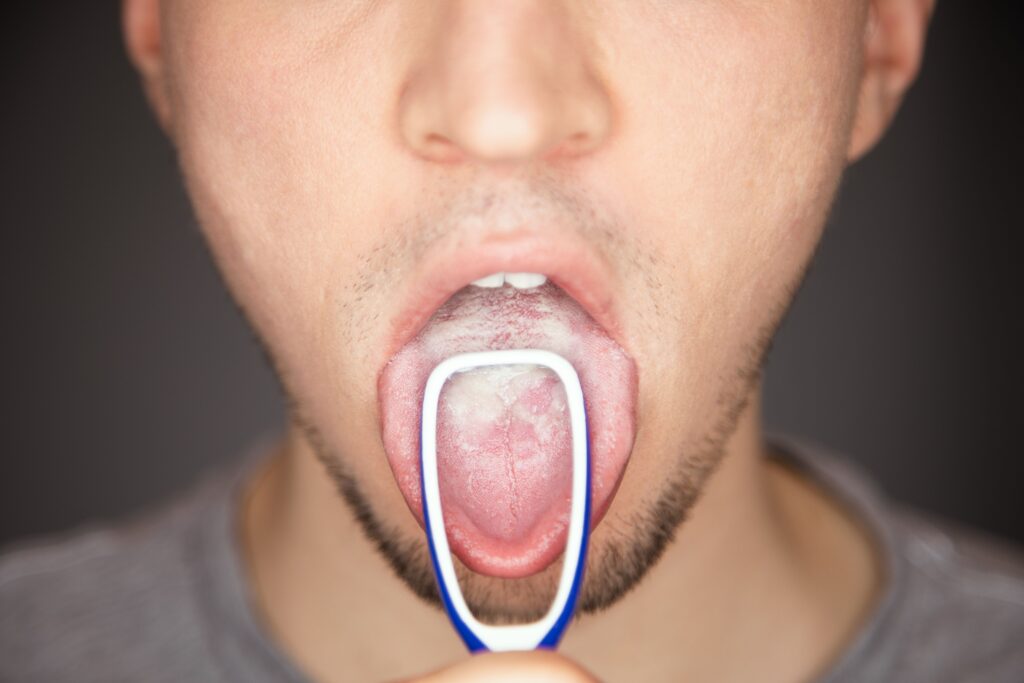Bad breath, or halitosis, can be embarrassing and uncomfortable. It’s something many people deal with from time to time, and it can have various causes, such as poor oral hygiene, certain foods, or even medical conditions. Luckily, there are several easy and effective ways to get rid of bad breath. In this article, we’ll cover 15 ways to improve your breath and keep your mouth fresh all day long.
1. Brush Your Tongue
Most people know they need to brush their teeth, but many forget about the tongue. Your tongue can hold onto bacteria, food particles, and dead cells, which can contribute to bad breath. Brushing your tongue, or using a tongue scraper, can help remove this buildup and keep your breath fresher.
- How to do it: After brushing your teeth, gently brush your tongue from the back to the front using your toothbrush or a special tongue scraper. Make sure to clean all areas, as bacteria can hide in the crevices of the tongue.
2. Brush and Floss Regularly

Brushing and flossing are two of the most important things you can do to keep your mouth healthy and your breath fresh. Regular brushing removes food particles and plaque from the surface of your teeth, while flossing removes debris from between your teeth where your toothbrush can’t reach.
- Tip: Brush your teeth twice a day for at least two minutes, and floss at least once a day to remove trapped food and prevent plaque buildup, both of which can cause bad breath.
3. Use Mouthwash

Mouthwash can be an effective way to kill bacteria that cause bad breath. Some mouthwashes also contain ingredients like fluoride to strengthen your teeth, or antibacterial agents that help reduce plaque and gingivitis.
- How to use: Swish mouthwash around your mouth for about 30 seconds after brushing and flossing. Avoid rinsing your mouth with water afterward so the ingredients can continue to work.
4. Drink More Water
One of the easiest ways to fight bad breath is by staying hydrated. A dry mouth allows bacteria to thrive, which can lead to foul-smelling breath. Drinking plenty of water helps wash away food particles and bacteria and keeps your mouth moist.
- Tip: Make it a habit to drink water throughout the day. Aim for at least 8 glasses of water daily to stay hydrated and reduce bad breath.
5. Use a Tongue Scraper

A tongue scraper is a tool designed to clean your tongue more effectively than a toothbrush. It helps remove the bacteria and debris that can cause bad breath.
- How to use: Gently scrape your tongue from the back to the front once or twice a day. This can be done after brushing your teeth to ensure your entire mouth is clean.
6. Avoid Tobacco Products

Smoking and using other tobacco products can cause persistent bad breath. Tobacco dries out your mouth and leaves a strong odor that lingers, and it can also increase your risk of gum disease, another cause of bad breath.
- Tip: If you use tobacco products, consider quitting. Not only will it improve your breath, but it will also have many positive effects on your overall health.
7. Practice Smoking Cessation
Quitting smoking is one of the best ways to improve your breath and your health. Smoking contributes to dry mouth, stains teeth, and leaves a foul odor that is hard to cover up.
- How to quit: There are many resources available to help you quit smoking, such as nicotine replacement therapy, support groups, and apps. Speak with your healthcare provider to find the best option for you.
8. Rinse Your Mouth with Water
After eating, especially foods like onions or garlic that can cause bad breath, rinse your mouth with water. This helps remove food particles and neutralizes strong odors.
- Tip: Carry a water bottle with you and rinse your mouth after meals or snacks to keep your breath fresh throughout the day.
9. Eat Apples
Certain foods, like apples, can actually help clean your mouth and reduce bad breath. Apples contain natural fibers and help stimulate saliva production, which can wash away food particles and bacteria.
- How it works: The crisp texture of apples acts like a natural toothbrush, and their water content helps rinse your mouth. Eating apples regularly can help keep your breath fresh.
10. Avoid Dry Mouth
A dry mouth is one of the main causes of bad breath because saliva helps cleanse your mouth by washing away food particles and bacteria. If your mouth is dry, bacteria can multiply and cause bad odors.
- Tips to avoid dry mouth: Drink plenty of water, chew sugar-free gum to stimulate saliva production, and avoid caffeine and alcohol, which can dry out your mouth.
11. Floss Daily

Flossing is essential for removing food particles and plaque from between your teeth, where your toothbrush can’t reach. These trapped particles can lead to bad breath if not removed.
- How to floss: Use about 18 inches of dental floss and gently glide it between each tooth. Be sure to reach below the gumline, where bacteria and food particles often hide.
12. Hydrate Throughout the Day

Staying hydrated is important for overall health and fresh breath. When you’re dehydrated, your body doesn’t produce as much saliva, which can lead to bad breath.
- Tip: Make it a habit to drink water regularly throughout the day, especially after meals, to keep your mouth moist and free from bacteria.
13. Chew Sugar-Free Gum
Chewing gum, especially sugar-free varieties, stimulates saliva production, which helps wash away food particles and bacteria. Gum can also temporarily mask bad odors.
- Tip: Choose sugar-free gum that contains xylitol, a natural sweetener that helps reduce bacteria in your mouth.
14. Care for Dental Appliances
If you wear dentures, retainers, or other dental appliances, it’s important to clean them regularly. Bacteria can build up on these devices and contribute to bad breath if they’re not properly maintained.
- How to clean: Follow your dentist’s instructions for cleaning your appliances. For dentures, soak them in a denture-cleaning solution overnight, and for retainers, brush them gently with a soft toothbrush.
15. Eat a Diet for Fresh Breath
Certain foods can improve your breath, while others can make it worse. Fresh fruits and vegetables, especially those with high water content, can help keep your mouth clean. On the other hand, sugary foods and drinks can feed bacteria that cause bad breath.
- Tip: Incorporate more raw vegetables like carrots and celery into your diet, and limit your intake of sweets and sugary drinks to keep your breath fresh.
Conclusion
Bad breath can be an unpleasant problem, but it’s often easy to fix with good oral hygiene and healthy habits. Brushing, flossing, and rinsing your mouth regularly are the best ways to keep your breath fresh. Staying hydrated and avoiding tobacco products can also help. Additionally, incorporating healthy foods like apples and chewing sugar-free gum can further reduce bad breath.
By following these 15 tips, you can maintain a clean, fresh mouth and reduce the risk of bad breath. Remember, if bad breath persists despite these efforts, it’s important to consult a dentist to rule out any underlying issues, such as gum disease or tooth decay.


